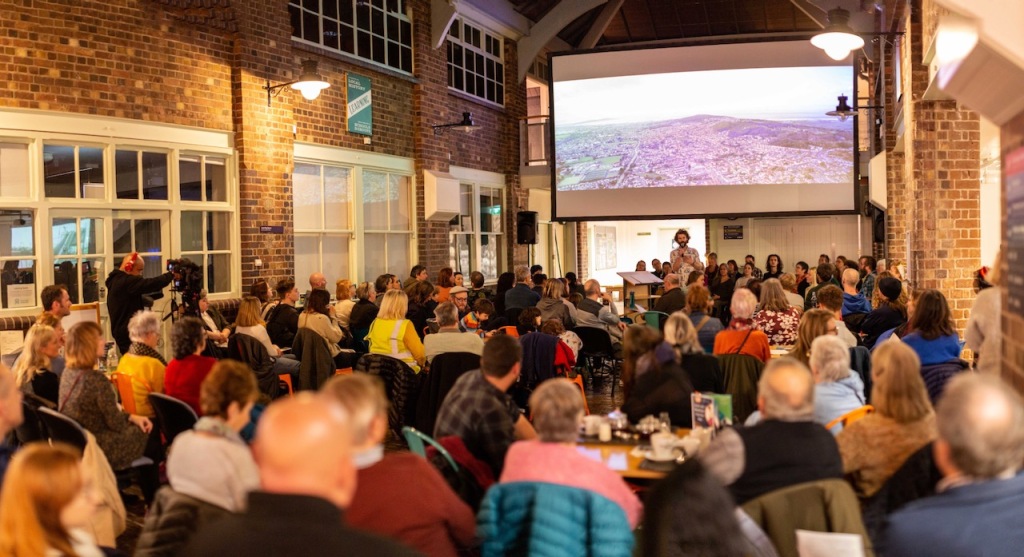Everyone knows the theatres are closed, along with cinemas, concert halls, museums and galleries. Yesterday, the 2020 Edinburgh Festivals were abandoned, like the 2020 Olympic Games and, perhaps most damaging of all, the COP26 Climate conference in Glasgow. The consequences for artists, actors, musicians, technical staff and all the others who work, mostly freelance, in creative roles have been devastating. The public and private institutions that finance the cultural sector have stepped in with admirable speed and imagination. The unions and associations that support individual artists have done what they can with more limited resources. In some countries, government has also come to the rescue. The intention of all these bodies is to try to prevent artistic and cultural life from being permanently damaged by bankruptcies. That is vital, both in itself, and for the people involved. Cultural workers, who are mostly not well paid, deserve the same social protection as shop workers and delivery drivers, teachers and nurses. We should judge our societies by how they protect us, and especially the most vulnerable, in a disaster.
There are those who will say that the work of artists cannot be compared with that of teachers and nurses, or even shop workers and delivery drivers. If they actually believe that, rather than unthinkingly repeating an ideological trope, they are mistaken. How deeply they misunderstand the role of culture in our lives may be judged by the way people in confinement have turned to their culture, for comfort, for solidarity, for entertainment and for sense-making. The balcony is now the most important cultural venue in Italy; the people have become their own singers, musicians, storytellers and artists. Anyone who thinks art is a luxury should try confinement without books, music, television, radio or a computer, We need to protect cultural workers because they have the same right to support as everyone else. We need to protect them too because they can play such a valuable part in all our lives – and especially when they are inviting us into the processes of co-creation.
Last Friday, a film premiere was scheduled in the town of Weston-super-Mare and, like so many other artistic creations on which people have worked so hard, it was cancelled – or not entirely. The film was streamed online instead, because it could not simply wait for better days. The film is about local people’s efforts to create their own better days through a series of projects created with artists. There’s a beautiful dance piece performed in an empty shop, a clever, surreal exploration of fake news through film, a lovely musical composition rooted in remembered sounds, and a life-affirming performance about spies involving hundreds of primary school children. The projects were developed over a year by a group called Terrestrial, whose work has helped bind many local artists and groups into a creative community working for the future of Weston and its people. Now that so many of us are stuck at home, I hope this film will reach a much wider audience. It’s as good as what you’ll find on Netflix and very different. It will repay your attention.
The film is a reminder of the joy and sense of possibility that good community art can create, but there is sadness too in watching it. It’s not only the artists who are spending their days at home, unable to go out or work. It’s the people who make art with them, the people of Weston who invested themselves so fully in these projects. And that is repeated across the country, across the world: access to community art has been suspended for the 100 people with learning difficulties who go to the Lawnmowers each week, the former mining communities in the Northern Heartlands, the singers who attend Streetwise Opera workshops, all the different groups who meet at City Arts, the homeless people in Wrexham that National Theatre Wales has been working with, the young inmates of Leiria prison, the school students who make music with Banlieues Bleues, the residents of care homes involved with cARTrefu – this list could go on, and on, and on. For every community artist unable to make work there are dozens of people, many of them vulnerable, who have lost access to an important, in some cases even vital, social activity.
Community and participatory art is the antithesis of social distancing. It exists – always, but never only – to bring people together. Its absence is being missed now by hundreds of thousands. This is what we are working to protect so that in months to come we can rely on its processes to bring us back together and help bind our hurt.
The photograph is taken from Terrestrial’s Twitter feed and shows a previous screening of one of the Weston projects

3 responses to “This is what we’re working to protect”
[…] François Matarasso, This is what we´re working to protect […]
LikeLike
[…] François Matarasso, This is what we´re working to protect […]
LikeLike
Hello François.
An inspiring video from Terrestrial.
Have you a link to the online film stream?
James
LikeLiked by 1 person